Cities of the Book of Acts
/in LivingEd - Online LearningGalilee
Acts 1:11 – Messengers after ascension: “Men of Galilee”
Acts 2:7 – During Pentecost, “Aren’t they Galileans?”
Acts 5:37 – Gamaliel mentions “Judas the Galilean” who rose up for a time, had some followers, who then scattered.
Jerusalem
Acts 1:1-8:3 – Starting point for the way. Events in chapters 1-7 occur in Jerusalem: Ascension, Pentecost, healings, Stephen’s ministry and death.
Acts 11:2-18 – Peter returns to Jerusalem and tells the brothers what happened in Caesarea.
Acts 12:1-19 – Herod kills James, imprisons Peter. Peter escapes and goes to Caesarea.
Acts 12:25 – After completing their mission (in Antioch), Barnabas and Saul return to Jerusalem with John Mark.
Acts 15:1-2 – Brothers from Judea came to Antioch teaching circumcision. Barnabas and Paul chosen to go to Jerusalem to discuss issue with them.
Acts 15:4-39 – Jerusalem council. Barnabas and Paul separate. Barnabas with Mark to Cyprus, Paul with Silas to Syria and Cilicia.
Acts 18:22 – Paul goes from Kenchreae to Ephesos to Caesarea (boat), then Jerusalem to Antioch (overland).
Acts 19:21-22 – Paul’s travel plans while in Ephesos: travel through Macedonia and Achaia, then back to Jerusalem, then on to Rome.
Acts 20:16 – Paul had decided to sail past Ephesos and meet the elders in Miletus because he didn’t want to spend time in Asia and was eager to get to Jerusalem for Pentecost.
Acts 20:22 – Paul tells the Ephesian elders in Miletus that he is on his way to Jerusalem.
Acts 21:15-23:22 – Paul in Jerusalem. Trials.
Acts 26:4-11 – In his defense in Caesarea, Paul tells of his persecution of Christians in Jerusalem.
Profile of Herod Agrippa II
/in LivingEd - Online LearningPaul’s Encounter with King Agrippa
Apostle Paul On Trial by Nikolai Bodarevsky, 1875. Agrippa and Berenice are both seated on thrones.
“Agrippa said to Paul, ‘You may now speak for yourself.’ Paul lifted his hand and started to talk, ‘King Agrippa, the Jews have said many things against me. I am happy to be able to tell you my side of the story. You know all about the Jewish ways and problems. So I ask you to listen to me until I have finished. ‘All the Jews know about my life from the time I was a boy until now. I lived among my own people in Jerusalem. If they would tell what they know, they would say that I lived the life of a proud religious law-keeper. I was in the group of proud religious law-keepers who tried to obey every law (Acts 26:1-5).“
King Agrippa
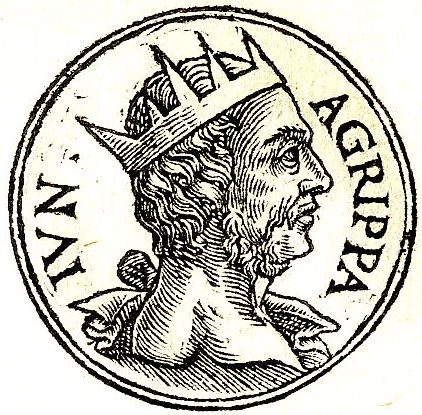
Born 27/28
Died c. 92 or 100AD
Full name
Marcus Julius Agrippa
Dynasty Herodian dynasty
Father Herod Agrippa I
Mother Cyprus
Herod Agrippa II was born in the year 28, and according to a statement that is not uncontradicted (Photius, “Bibliotheca,” cod. 33), it is said that he died in the year 100. He was educated in Rome, where he saw much of the court life that had been so harmful to his father. It proved just as detrimental to him, for he reached maturity just at the time that Messalina and Agrippina dared to flaunt the most fearful depths of profligacy in public. On the sudden death of his father, the emperor Claudius desired him to enter into the full inheritance of all his rights and titles, but upon the advice of court favorites he refrained from doing so. Once again Judea was handed over to the care of procurators, and for the time being the young man was detained at court. Here he had the opportunity of being helpful to his coreligionists from time to time (Josephus, “Ant.” xv. 11, § 4; xx. 1, § 2) and of acquiring proficiency in all the arts of courtly flattery.
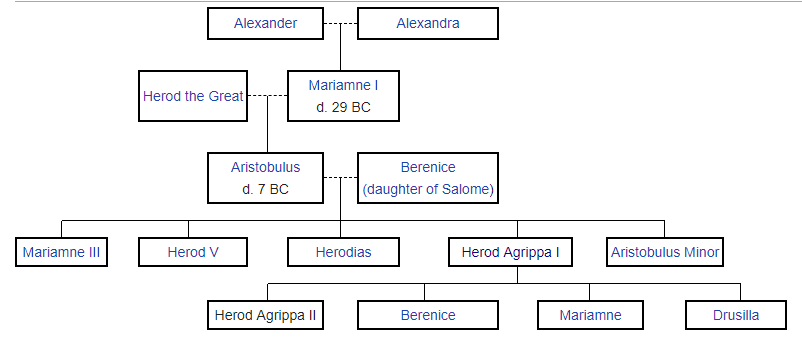
Succeeds Herod II. On the death of Herod II., Agrippa succeeded in having the former’s post promised him. In the year 50, without regard to the rights of the heir to the throne, he had himself appointed (“B. J.” ii. 12, § 1; “Ant.” xx. 5, § 2; 9, § 7) to the principality of Chalcis by the emperor, and also to the supervisorship of the Temple at Jerusalem, which carried with it the right of nominating the high priest. Within three years—possibly before he left Rome to assume the dignity of his office—the emperor presented him with larger territory in exchange for Chalcis, giving him the tetrarchy of his great-uncle Philip—over which Agrippa’s father had also ruled—together with that of Lysanias (Abilene), and the district of Varus (“Ant.” xx. 7, § 1; “B. J.” ii. 12, § 8). Nero, when he became emperor, added to this territory, giving him considerable tracts of Galilee and Perea.
Paul’s Travels
/in LivingEd - Online Learning50 – Paul took Silas to Syria and Cilicia. Barnabas took his nephew John Mark to Cyprus and presumably on to Egypt (Acts 15:39).
50 – Paul came to Derbe and to Lystra (Acts 16:1).
50 – At Derbe Paul met Timothy (whose mother was a believing Jew and his father a Greek unbeliever) and circumcised him (Acts 16:1-3). Note: this matter is understood as one of expediency in order that Paul’s work among the Jews would not be hindered. It differs from the matter of Titus (Galatians 2:3) as some at Jerusalem had argued for the necessity of circumcision as a prerequisite to being a Christian.
The Nazarite Vow
/in LivingEd - Online LearningWhat is a Nazarite vow?
Do we have any examples of a Nazarite vow in the Scriptures?
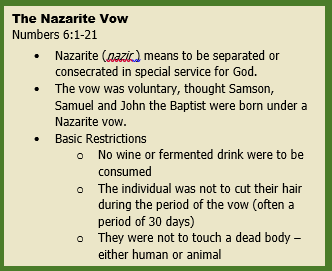
In Lectures 2,3, and 4, Dr. Meredith describes how Paul and his companions participated in a Nazarite vow.
In Numbers 6, Moses was inspired of God to lay out the requirements of a vow of special consecration to God, called a Nazarite Vow. Generally men took this vow for a specific period of time, after which, there was a ceremony marking its conclusion. During the time of their vow, the men were not to cut their hair or shave, nor were they to taste any grape product, including wine, fresh grapes, or raisins, nor were they to touch anything that would make them ceremonially defiled.” (Ogwyn, John. “A Tale of Two Nazarites”)
.jpg)
James propose to Paul to sponsor and pay the expenses of the Nazarite vow for some of the men in order to prove to Paul’s detractors that he is loyal to the Law (21:22-25).
As Mr. Meredith explains in Lecture 2, the book of Acts describes how Paul had apparently taken a Nazarite vow when he cut his hair off at Cenchreae. But there was another major character in the New Testament who lived under a Nazarite vow. That man was John the Baptist.
The two examples in the Old Testament of men who lived under a Nazarite vow were contemporaries, and they served God in leading Israel. But they were very different men.
To read the full story of these two men, just go to Mr. John Ogwyn’s article, “A Tale of Two Nazarites”.
If you’d like to do more research into how the Nazarite vow became woven into Jewish culture in history, a good place to start is the Jewish Encyclopedia. Follow this link for an article on this topic.
Diana of Ephesus
/in LivingEd - Online LearningANCIENT GODDESSES
T
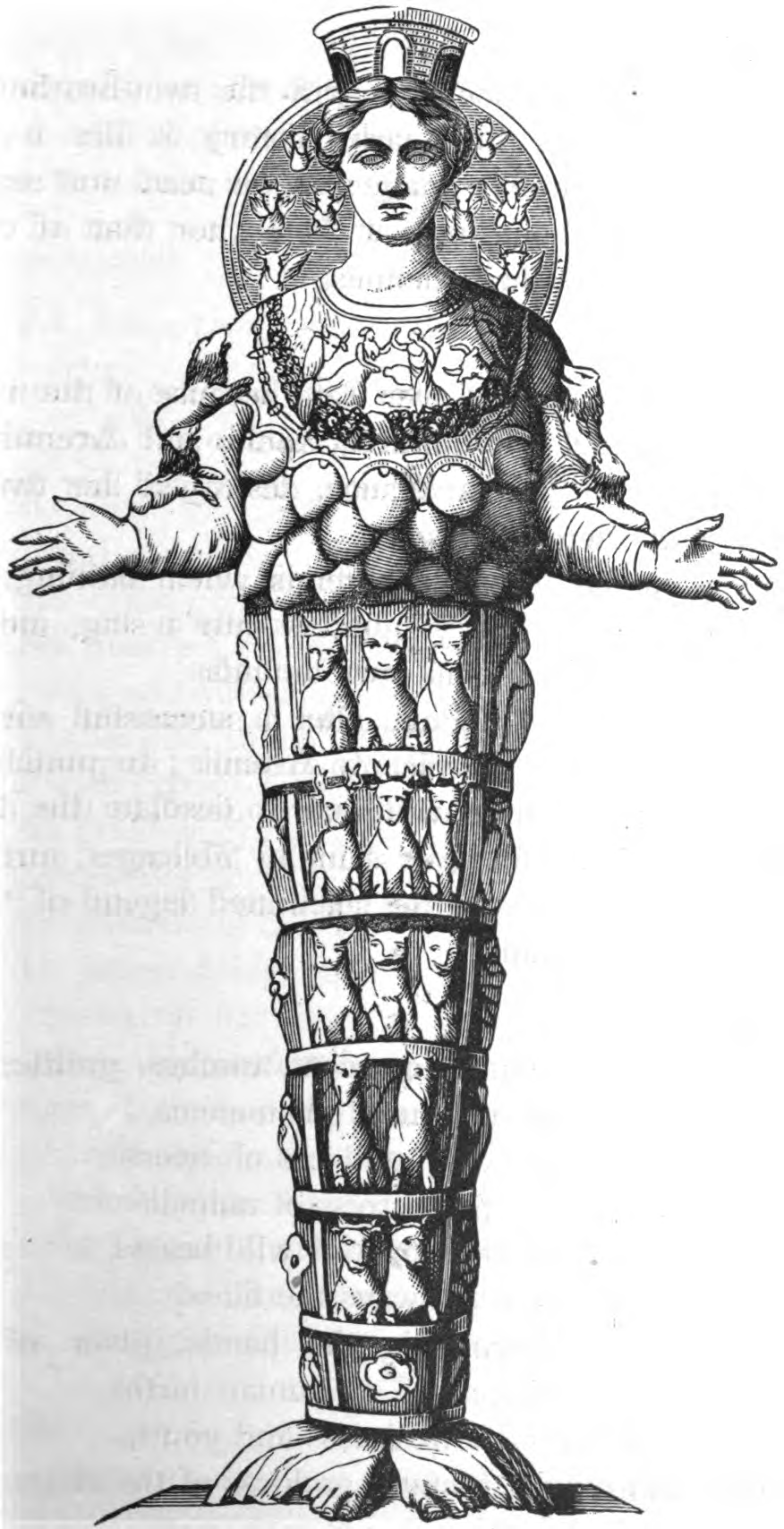 he Diana of Ephesus was a goddess “whom all Asia and the world worship” (Acts 19:27). Diana was the Roman name for the Greek deity Artemis, the “goddess of the moon and the chaste and sister of the sun-god, Apollo” (Colliers Encyclopedia). Artemis was also the “protectress of chastity and patroness of childbirth” and the goddess of seafarers, who brought good weather and profitable voyages (Encyclopaedia Britannica,11th edition). She is often portrayed as a virgin and mother goddess and the “Mistress of Animals.” Her statues depict a multi-breasted figure wearing a turreted crown. Artemis incorporates many features of the great mother goddess who was worshiped under a variety of names in the ancient world (see The Oxford Companion to the Bible).
he Diana of Ephesus was a goddess “whom all Asia and the world worship” (Acts 19:27). Diana was the Roman name for the Greek deity Artemis, the “goddess of the moon and the chaste and sister of the sun-god, Apollo” (Colliers Encyclopedia). Artemis was also the “protectress of chastity and patroness of childbirth” and the goddess of seafarers, who brought good weather and profitable voyages (Encyclopaedia Britannica,11th edition). She is often portrayed as a virgin and mother goddess and the “Mistress of Animals.” Her statues depict a multi-breasted figure wearing a turreted crown. Artemis incorporates many features of the great mother goddess who was worshiped under a variety of names in the ancient world (see The Oxford Companion to the Bible).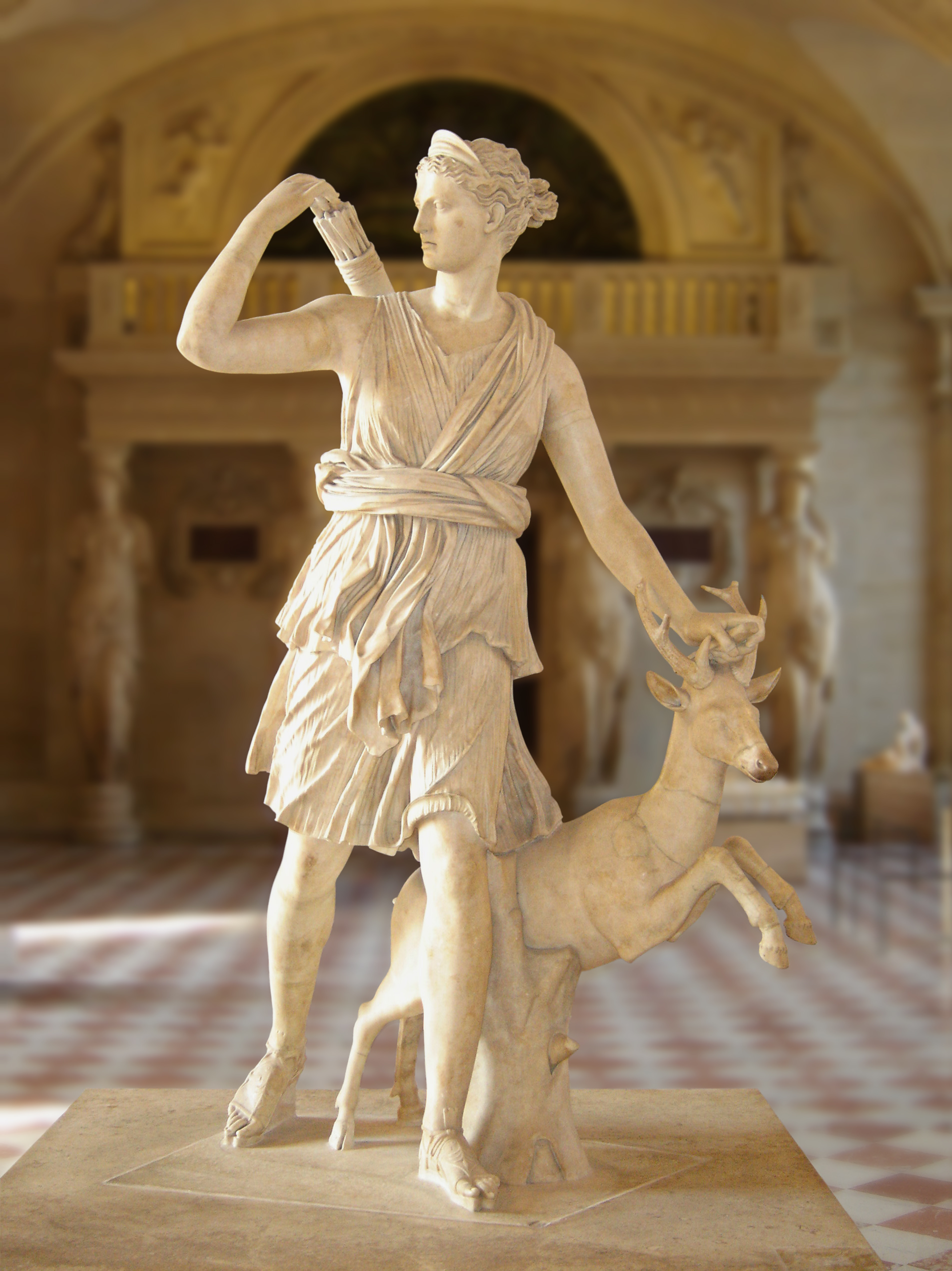 By building a church for Mary in Ephesus and declaring her “Mother of God” near the great temple of the mother goddess Diana, the Catholic church simply borrowed and adapted ancient traditions that allowed new converts to continue pagan practices in a “Christian” context!
By building a church for Mary in Ephesus and declaring her “Mother of God” near the great temple of the mother goddess Diana, the Catholic church simply borrowed and adapted ancient traditions that allowed new converts to continue pagan practices in a “Christian” context!
…Excerpted from “The Lady of Nations,” Tomorrow’s World, 2003 November-December
To read the whole article, including Diana’s connection to modern-day worship of Mary, read “The Lady of Nations“
To learn more about “Diana”, a good resource is the International Standard Bible Encyclopedia, under the article “Diana; Artemis”.
Do You Know 16 of the Names of God?
/in LivingEd - Online LearningDo you know God’s name?
